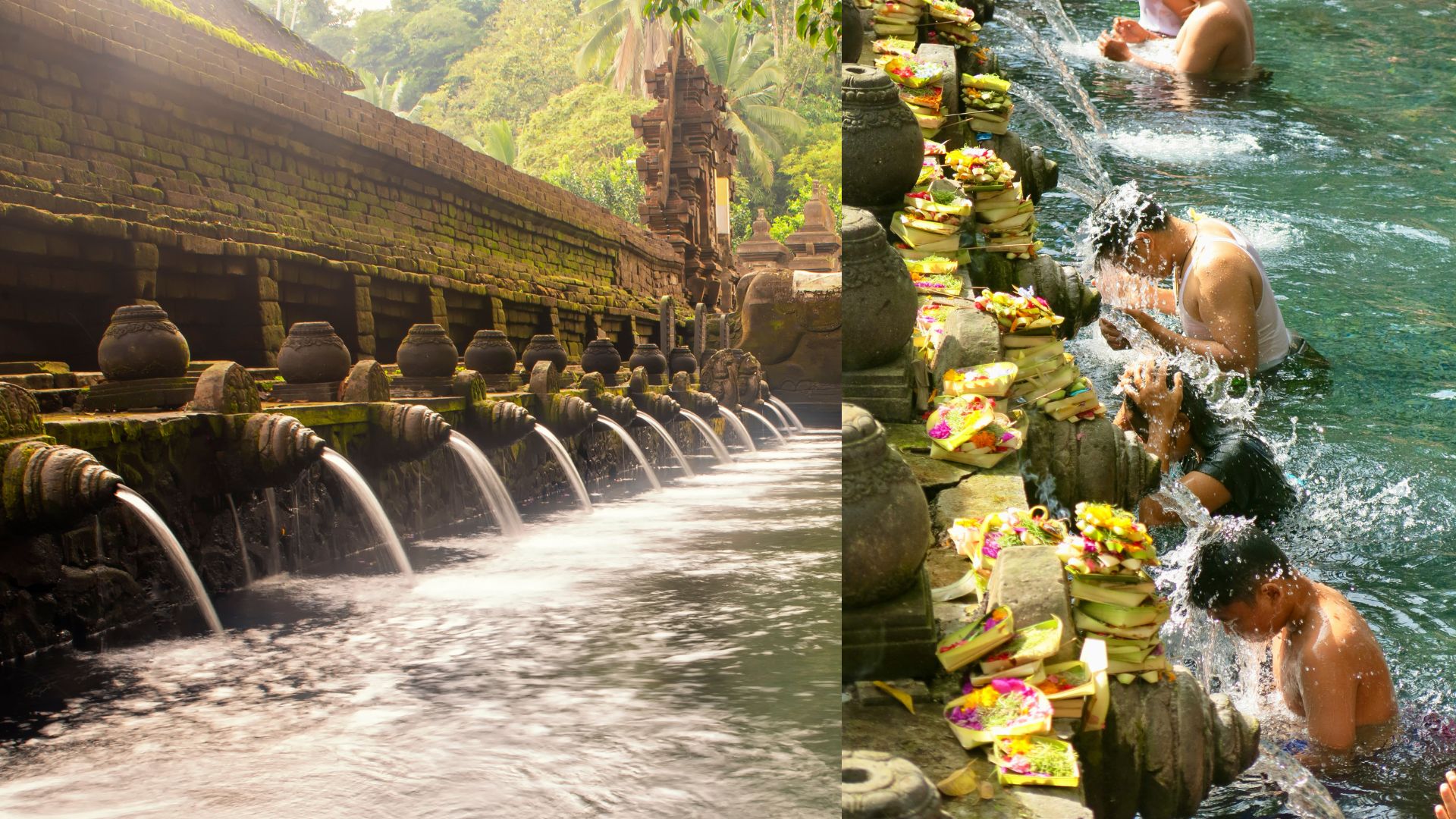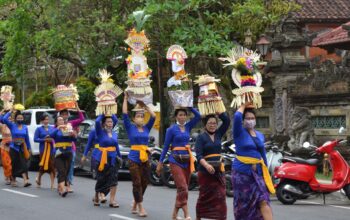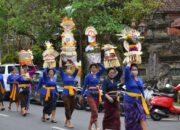What is Melukat, and what is its spiritual meaning for the Balinese people?
If you’re traveling to Bali and hear people talking about “melukat,” don’t immediately think it’s just a regular bath. Melukat is a self-purification tradition that holds deep meaning for the Hindu Balinese community. It’s not just about cleaning the body from sweat or dust, but more about cleansing the mind, heart, and energy from unseen negative things. Melukat has been an important part of the spiritual life of Balinese people for a very long time. It is usually performed in sacred places with natural flowing water such as springs, rivers, or holy water sources. This water is called “tirta,” and is believed to help neutralize bad auras, purify the soul, and even alleviate unexplained anxiety.
According to Balinese belief, human life is divided into two parts: the physical body (jasmani) and the spiritual self (rohani). The balance between the two is very important. So, if you constantly feel tired even though you’re not very active, or often feel anxious without reason, it might not just be a physical problem, but your inner self is “dirty” or heavy. This is where melukat is believed to help “reset” from within.
Melukat is also not just a formal ritual. Many Balinese people do it regularly, whether once a week, once a month, or on certain occasions such as holy days or after experiencing bad events. They believe that a clean body but a clouded mind will still lead to an unpeaceful life. So, melukat is a moment to release unhealthy energy and open up space for good things to enter oneself. For the Balinese people, this is also a way to get closer to Sang Hyang Widhi (God), through water as a symbol of purity and life. The water in the melukat ritual is believed to carry prayers, blessings, and divine power that can soothe the heart and calm the mind. It’s no wonder that many people say they feel calmer, lighter, and clearer in their thoughts after melukat. In short, melukat is like a wet meditation, but with deep spiritual meaning and full of symbols. It’s not surprising that many tourists participate in melukat not just for a “local experience,” but because they truly feel its benefits from within.
Who can participate in the Melukat ritual, and what are the requirements or ethics that must be followed?
This is what tourists often ask. The answer is: yes, anyone can participate in melukat, even if you are not Hindu. However, there are manners and respectful attitudes that need to be maintained. Usually, you will be asked to wear a kamen (Balinese cloth for the lower body) and a sash around your waist. Do not wear revealing clothes, especially those that are too flashy. This is a sacred place, so maintain politeness, avoid talking loudly or laughing during the ceremony. Oh yes, if a woman is menstruating, it’s best to postpone it. This is not discrimination, but part of customary rules because menstrual blood is considered “not yet sacred.”
How is the process and sequence of Melukat generally carried out?
Melukat is usually performed in a special place with flowing holy water, which can be a spring, river, or holy spring at a temple. This water is believed to have spiritual power that can cleanse “unseen dirt.” The process can vary depending on the place and tradition, but generally the sequence is as follows:
- Offering canang – a small offering to ask for permission and blessings.
- Prayer or worship – usually guided by a pemangku (traditional leader).
- Splashing tirta (holy water) – sprinkled on the head, face, and body.
- Bathing ritual – you will enter under the spring or immerse your body in the river.
- Closing – sometimes accompanied by meditation or a moment of silence to feel completely calm.
If it’s your first time, it’s best to be accompanied by a local person or a guide so you understand the procedures.
Where are the most famous and sacred Melukat places in Bali, and what is the uniqueness of each?
Bali has many melukat locations, from very famous ones to those still hidden. Here are some that are often recommended:
- Tirta Empul (Tampaksiring) This is the most iconic! There are dozens of fountains, and each has a different function. It’s usually very crowded, but still feels sacred.
- Pura Mengening (Tirta Sudamala, Gianyar) The atmosphere is calmer, suitable for those who want a more private atmosphere.
- Campuhan, Ubud Melukat in the open nature, the river flow is very cool, making the body and mind feel refreshed.
- Pura Beji in Sangeh or Sebatu Suitable for those who want a deeper spiritual experience.
If you like places that are not yet crowded with tourists, you can ask locals — they usually know hidden spots that are no less sacred.
What are the benefits felt after Melukat, spiritually, emotionally, and physically?
For many people, yes, definitely. It feels like being released from a burden that has been stuck in their mind. Many say that after melukat, they feel lighter, calmer, and even more focused in living life. Some also feel healthier, as if negative energy has been lifted. But remember, melukat is not magic. The effects can be felt immediately, or slowly, depending on how open and sincere our intentions are during the process.
Conclusion
Melukat is not just a religious ritual, but also a form of self-reflection. It’s a moment to pause from the hustle and bustle of the world, greet yourself, and cleanse from within. If you come with an open heart, it will not only be a spiritual experience, but it can be the most memorable moment during your time in Bali.












